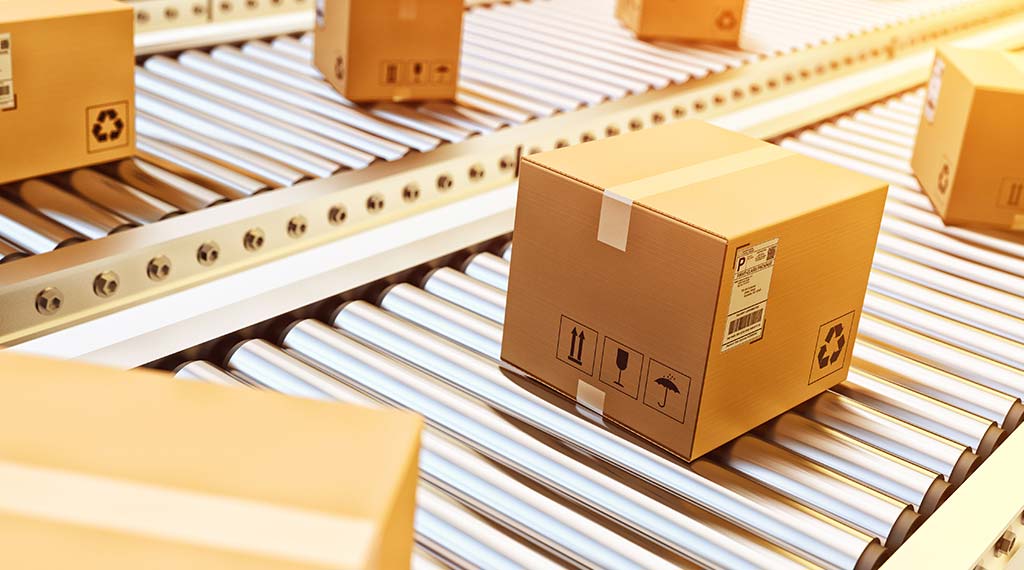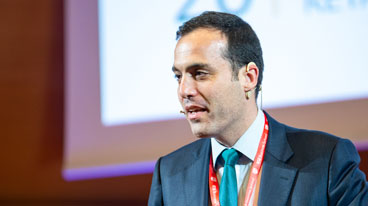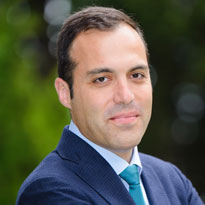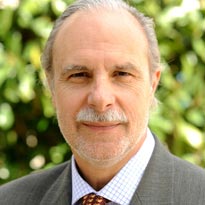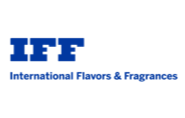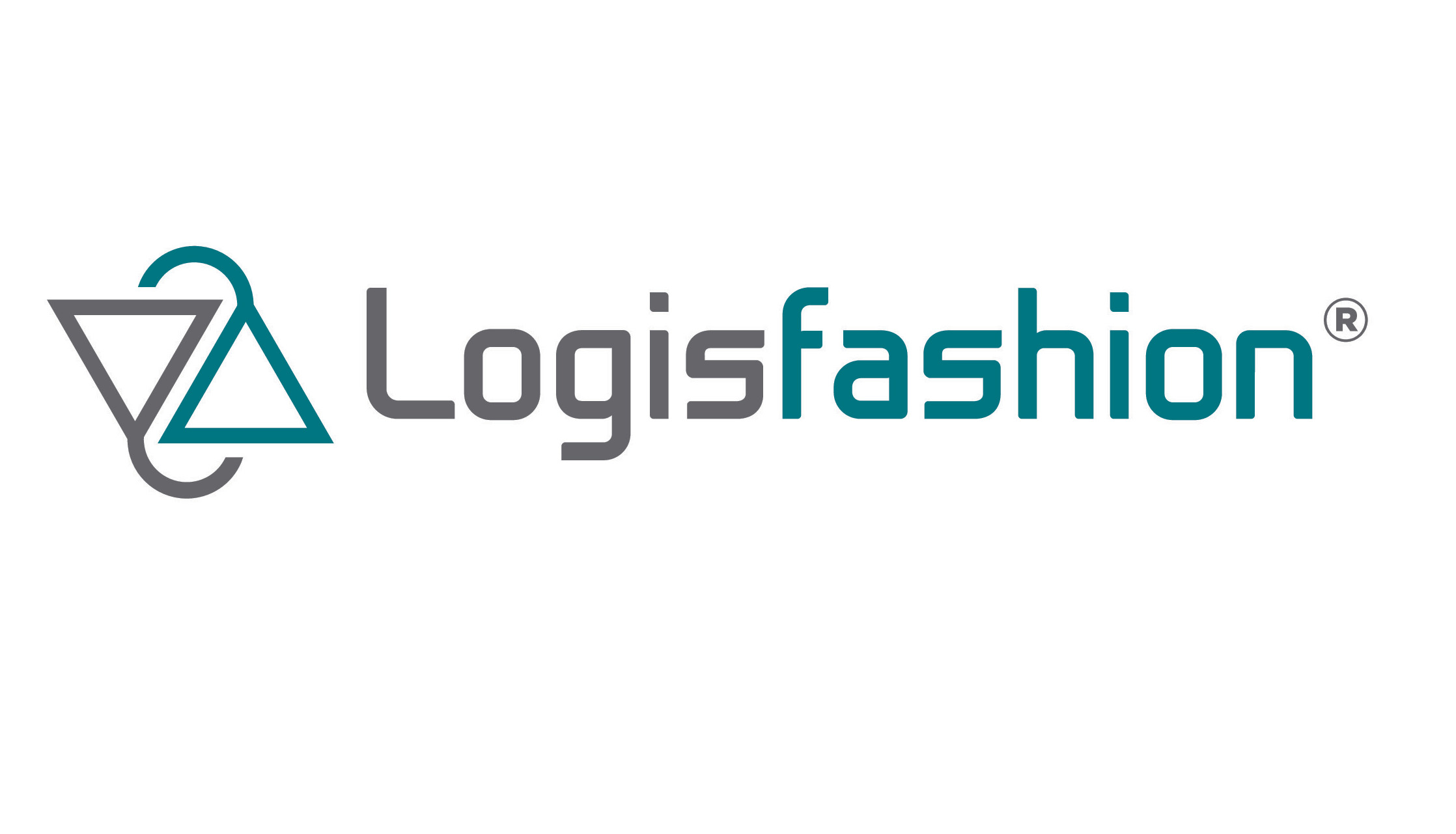Alpha dry run de la nueva simulación de digitalización industrial
Excellence in Operations Initiative
Promoting knowledge to improve operations and technology
In Spain, knowledge is highly fragmented and atomized between individuals and industries. The average number of workers per company is below the European average; that is, business fractionation is greater than in most European countries, only ahead of Ireland, Italy and Greece.
The Excellence in Operations Initiative (INEO) is aimed at facilitating the generation of economies of scale in the knowledge of the management of operations and technology in Spanish companies. This will be achieved through the exchange of experiences and knowledge of operations in service sector and industrial companies, as well as through the interaction between the academic and business worlds, facilitating the identification of lines of research.
Programs.
IESE responds to the demand of certain industrial sectors with management programs that address specific challenges in operations. These programs allow professionals to interact with peers, gain new points of view and share ideas.
Research.
You will find the most recent publications of the professors of the department of Operations, Information and Technology, including scientific articles, studies, teaching material (such as cases and technical notes) and other informative content (such as opinion pieces, interviews and videos), in the IESE Insight portal.
Team.
Team.
Sponsors.
INEO has institutional and individual support to develop its activities, achieve research objectives and carry out instructional activities at the pace of the needs of employers and managers.
2022-2023 activities.
The objective of the activity was to take a good look at the characteristics and capabilities of 3D printing in terms of development and technological solutions from today’s point of view as well as that of tomorrow. Attendees obtained a complete understanding of the implications of this technology and its applications in the short and medium term.
The activity began with a discussion of the case study “The Origins of 3D Technology”, prepared by Joan Jané, Professor in IESE’s Department of Operations. The case study was presented by Prof. Frederic Sabrià, also from the Department of Operations.
This was followed by two complementary visits related to 3D technology:
- HP’s 3D Demo Center in Sant Cugat del Vallés where, after an initial description of the center and its activities, attendees participated in a visit of the facilities covering topics including existing and future practical applications of 3D technology, the latest hardware, types of parts manufactured and materials used.
- DFactory: Economy 4.0 Center, created by the consortium of Zona Franca of Barcelona, located in the Zona Franca itself. The consortium aims to is to become a hub for the development of Industry 4.0, bringing together the most innovative companies and initiatives in a single space. Attendees were introduced to specific projects that are already reaching the market in the HP production unit. Special emphasis was given to the time-to-market and technical and economic viability.
Finally, Professor Eduard Calvo presented the “Additive Manufacturing at Etnia Barcelona” case, of which he is also the author. The case discussed how to address the potential impact of 3D technology on an existing business.
In online format, the objectives of the activity were:
- To understand how private equity values a potential acquisition and how the target company’s operations contribute to the buyout value.
- To understand the role of private equity in managing the operations of its investees and the differences with respect to other types of shareholders, whether family or institutional.
- To resolve any doubts regarding the role of private equity in the participation of companies with intensive operations.
- Two executives with extensive experience in the investment and management of private equity projects in both industrial and service companies were present:
- Juan Martínez de Tejada, Partner, Navis Capital
- Lluís Molins, Director, Abac Capital
The debate covered topics including (i) their investment mandates, (ii) the characteristics they look for in the operations of the companies they acquire and what role these have in their investment decisions, (iii) how the operations of their investees contribute to post-acquisition value creation. They also discussed the role of digitalization, sustainability and lean management as they related to their investees. Finally, they touched on the main causes of failure in their investees.
E. Cima was founded in 1958 as a weaving company for use in upholstery and apparel markets, later incorporating dyeing and finishing both for its own service and for third parties. Over the years, E. Cima has grown organically and through acquisitions, and today possess a highly specialized machinery park in the development and manufacture of textile solutions for technical applications.
We began with a visit to the company’s facilities, as is usually the case with INEO’s Industrial Challenges. There, we gained an in-depth understanding of the related processes and challenges before moving on to a discussion the following day. The weaving phase presented the greatest variability. This was true for three reasons: the many combinations of the design of the technical product; the relatively long preparation times; the inherent variability of a demand that comes from very different and specialized sectors and applications.
The challenge was to find alternatives that would make it easier to shorten preparation and production times in the weaving mill, thus enabling better customer service. The on-site analysis of the processes and subsequent discussion focused not only on the planning itself, but also on all the previous steps that could facilitate it.
This conference was organized in collaboration with the Fundación Privada Institut Cerdá with the objective of making a realistic analysis of what industry can expect from this new energy vector within the framework of transition from the current model to one that minimizes the impact on the environment. The aim of the conference was to put the expectations that were being generated about the decarbonization alternative at that time in their proper place.
Representatives from the Institut Cerdá and the Repsol Technology Lab took part in the conference, explaining what can be expected from this energy vector as well as a predicted timeframe. Two roundtables representing the industry were also organized: one on the demand side with representatives from IFF, Lecta and Moventia, and another on the supply side that included representatives from Repsol, Iberdrola, Naturgy and Acciona Energía.
2021-22 activities.
The session was organized into two blocks:
- Presentation of the basic characteristics of 5G technology and a session outlining examples of concluded and ongoing pilot applications, led by José Antonio Legazpe, Innovation Director at Cellnex Spain.
- Discussion on where those attending see potential for the application of technology and what challenges could be tackled, moderated by Prof. Albert Girbal.
This online event was structured into two sessions per day. Four case studies were presented focused on companies implementing excellent operations practices in the view of the business schools from each country taking part in the selection: TMG Automotive (Portugal), Nobilia Werke (Germany), Simonelli Group (Italy) and Henkel Germany (Germany). According to a vote of the jury consisting of representatives from all schools, the winning company was Henkel Germany with an exemplary supply chain digitalization project.
Jeanología manufactures textile industry process machinery that ensure drastic reductions in its environmental impact. The company has also set itself a “mission zero” target which seeks to eliminate water, energy, toxic chemicals and waste from the production process of 100% of the five billion pairs of jeans that will be manufactured worldwide in 2025.
During the Industrial Challenge, the optimization of the replacement processes for laser units reaching the end of their life in the company’s customers around the world was discussed, as well as the recently adopted business model “Urban Factory”. The Urban Factory takes advantage of all the company’s technologies and, through a postponement application, allows the jeans to be transferred from Southeast Asia to the countries where the final demand is. Additionally, it generates significant improvements in occupational safety and environmental impact, representing a revolution in the organization of the global supply chains of these garments.
This activity included the discussion of the case “Henkel: a digital transformation journey”, written by Joan Jané, professor of the Department of Operations of IESE and, on this occasion, was moderated by Professor Albert Girbal of the same department.
This was followed by a visit to the factory that the company has in Montornés del Vallés (Barcelona) and that had recently been named as “Industry 4.0 Lighthouse Factory” by the World Economic Forum to become a reference of supply chain digitalization.
The visit also involved the preparation and discussion of an Industrial Challenge in which ways to make the supply chain more resilient in the dates close to production was discussed so that it would be easier for suppliers to keep track of demand variability, and its impact on production planning with the aim of achieving an end-to-end collaboration with them.
2016-2021 activities.
The company’s business model has shown its worth through sustained near double-digit sales growth annually. However, it is clear that the complexity of the preparation and distribution of orders increases in line with sales, to the point that it may represent an obstacle to growth. The challenge therefore lies in determining the logistics solution that the company needs to adopt in order to maintain growth.
Questions posed included:
What kind of development of logistics would result in the highest growth?
Should existing channels be maintained on the new or extended platform?
Should all the existing range be taken into consideration?
Are the current complexities regarding order preparation necessary? and
Could things be done differently?
This was the first face-to-face activity since the pandemic and featured a comprehensive visit to the company’s facilities in Maçanet de la Selva, followed by a discussion on current challenges at its training center.
Recent investigations have shown that there is a clear causal relationship between logistics execution and the ability to tie in future customers – faster, more reliable deliveries today will result in increased sales tomorrow. To this end, for those companies who mainly rely on online sales, logistics is more than just a cost center, it is a way to leverage value creation that complements marketing in the definition of the customer experience, one that drives the top line of the income statement.
The challenge facing logistics companies is therefore threefold: (i) to deliver orders quickly, economically and error-free, (ii) to ensure double-digit growth and finally (iii) to cover every town and city without affecting traffic flow or inconveniencing people, always respecting the environment.
In order to better understand the challenges associated with such activities and the solutions that are being adopted – as well as those to be adopted in the future – this knowledge debate featured two executive managers from leading companies specializing in local delivery, Districenter and Paack, who shared their value proposal and the lessons they had learned in the race to facilitate the delivery of online purchases.
The main aims of the workshop were to show that artificial intelligence can be used today in the operational reality of many companies and show the specific way in which this can be done.
The session offered practical advice on the first steps to be taken toward future AI initiatives in companies taking part. The first part of the workshop was more theoretical, introducing the basics of artificial intelligence, while the second looked at it practical application to situations specific to the attending companies. The workshop concluded with a brainstorming session on how best to use AI, moving forward. The workshop was led by Prof. Víctor Martínez de Albéniz.
The ongoing pandemic has resulted in important changes to the work volume and mix for many companies. This knowledge pill-debate featured two executive managers from leading businesses in their sectors – Amazon and Mahou San Miguel – who shared their experiences of the operational implications of the very different scenarios they have had to face.
Amazon Pantry went from being a basic service to seeing demand explode overnight. Meanwhile, Mahou San Miguel had to deal with an unprecedented decline in its hotel and catering channel, the impact of which could not be offset by the increase in distribution sales. What measures were taken to adapt its production capacity? How best to manage growing or decreasing staffing needs? What demand management policies were implemented? These and other questions were discussed during the debate.
Recent IESE Department of Operations case studies, including the prior sending of the case, preparation in groups and plenary session discussions. The session was held online.
- Tuesday, November 24, 2020.
- The Tianjin explosion: disaster management in uncertain environments. Prof. Marc Sachon. Also featuring: Dr. Martin Hofmann, Volkswagen
- Tuesday, December 1, 2020.
- Purchasing case study – Selection of suppliers at Pepsico Europe. Prof. Alejandro Serrano.
- Supply chain case study – Mercadona 2020. Prof. Albert Girbal
The workshop had a double aim – to provide information and share knowledge regarding the lockdown measures that companies had taken, both in offices and in the field and their safe return plans and, very importantly, how to deal with the potential upheavals that the current situation might throw up. The second focus of the workshop, which was held online, was that of sharing the various practices that had been adopted (both the positive and those which had not worked), the uncertainties provoked by the situation, future operational plans and all the serious concerns that have arisen in this period.
The workshop agenda featured activities that required certain prior preparation, a wide range of presentations and debates both in small groups and involving the workshop as a whole.
Vibia is a company in the lighting sector which operates in over 80 countries, as well as having a subsidiary in the United States. The company is active throughout the supply chain, from design to marketing and sales, including production and its post-sales service.
Each collection on the market is unique, differing from others from both a visual and aesthetic point of view and in terms of the materials and/or processes used. As part of the same collection, Vibia also offers the option to personalize a large number of its products.
This represents a major challenge to Vibia’s operations – how to ensure uniformity in terms of models and personalization while coping with the high level of specialization of lamp production processes that means that each collection practically requires its own specific supply chain. Nevertheless, in order to be able to compete globally within a B2B environment, Vibia need to extend its product range to become a one-stop supplier in the projects in which it takes part. The aim of this challenge was to discuss how best to extend its range without relinquishing its identity as the manufacturer of complex and personalized niche products or affecting the high level of customer service.
The CELSA Group is the leading private steelmaking group in Spain and the third biggest in Europe. It comprises six business units that include steelworks, rolling mills, processing plants, distributors and recycling companies.
The steel production process presents numerous opportunities for the application of technology. CELSA is already applying cutting-edge technologies such as image recognition, advanced sensor systems, augmented reality and nanotechnology. However, unlike in other sectors which enjoy greater leeway and a wider range of product types, the application of innovation is almost always reliant on the improvement and optimization of the production process.
During the challenge, the following aspects were discussed, among others: How to innovate within a mature industrial environment with high pressure on costs? What is the best formula to strengthen disruptive innovation in a setting which demands short-term returns on investment? Might innovation represent the best way to reduce costs?
After a visit to the plant at Castellbisbal, Barcelona, to get to know the company and its operations, a second session was held at IESE at which the shared challenge of innovation models at various companies was discussed.
INEO partners met at the Mahou San Miguel brewery in Alovera, Guadalajara to discuss improvements that could be made to sales and operations planning.
New trends in personalization (in the case of beers, this takes the form of the increasingly popular “craft beers”) mean that traditional approaches to planning – designed for large sales volumes and, backed by extensive and detailed historical information – cease to be applicable in this new commercial environment.
Aided by real, practical case studies, the famous brewer joined other companies is setting out its vision with regard to information exchange, approaches, technology and processes.
Logisfashion is a global logistics operator specialized in the provision of integral services for clients of the fashion and retail sector with presence in Spain, Europe, South America, United States and Asia. The good management of the supply chain with high knowledge in operations and support technologies has allowed Logisfashion a solid position in the market.
The challenge presented was to find new ways to make technological stock profitable: Do they have to make a split? Licensing part of the solutions? Or continue to maintain the IT department as a cost center? The day began with a visit to the Logisfashion warehouse in Guadalajara to continue the debate on the IESE Campus in Madrid.
Ferrero, the iconic company that produces the well-known Nutella, operates in the Iberian Peninsula with the logistics distributor Carreras, an expert in the large consumer sector. During the industrial challenge, the INEO partners had the opportunity to review and validate the collaboration strategy that these two companies have initiated.
This means closer view of a series of challenges to consider, such as measuring productivity or managing conflicts between the two companies. After a visit to the Carreras warehouse, being able to see the operations of Ferrero, the INEO partners continued with the challenge the next day at the IESE Campus in Barcelona for the various work sessions and discussions.
The discussion panels of the VII Industrial Productivity Conference—organized by Elara Ingenieros and IESE—focused on three main topics: (i) leadership in the factory 4.0, (ii) operational and analytical intelligence in the shop floor and (iii) market measurement.
In the afternoon INEO partners had the opportunity to participate in a custom workshop led by Prof. Joan Jané on Industry 4.0 where the initiatives of 2 very different companies were analyzed and shared in a practical way: Kaiku (milk industry) and Huntsmann (chemical sector).
The Industrial Excellence Award measures the competitiveness of the industrial and service sectors in Europe. The focus of the competition lies in the definition and deployment of the strategy.
Since 2009, IESE has organized the awards at the Spanish level, awarding the winning prize to the company or business unit that will compete against European counterparts. INEO is used as a platform for the organization of these awards.
The Belgian company UNILIN is the owner of the patent and producer of the floor parquet that is assembled without glue, known by the trade name of Quick-Step. This patent ended its legal life in 2017. During the workshop the guests and partners of INEO had the opportunity to learn about the company’s patent strategy from UNILIN CEO Paul DeCock. During this workshop, a process of re-evaluation and proposal of ideas for the company’s patent strategy was carried out.
Archroma is a multinational in the chemical sector with a production plant in El Prat, Barcelona. Due to a reorganization of the global logistics chain, the El Prat plant needed a fast redesign of its logistics process to become a center of gravity at European level.
In order to face the problem, an industrial challenge of two days was prepared with a visit to the plant, contextualization of the problem, team work, debate and sharing. At the end of the workshop, a report was made with the main conclusions and findings.
The Orkli industrial cooperative manufactures and sells safety components for gas equipment, boiler components and components for heating and domestic hot water (DHW). For a long time, the heating and ACS activity was in the spotlight because it was the most different from the other business units in terms of production dynamics and the one with the lowest profitability. What should be done with this business unit?
In the case study, INEO partners and guests discussed the possible solutions after a detailed visit to the facilities and a presentation in context. Should you sell the business unit? Do a spin-off? Keep it? INEO members enjoyed an intense day where they discussed the case study at a strategic and operational level to the dynamics of a cooperative.
The VI Industrial Productivity Conference was held under the themes of Productive Improvement Strategies in Innovation, Customization and Talent. To this end, three discussion tables were organized with exclusive guests such as CAF ventures, Iberdrola, Mahou San Miguel, Angulas Aguinaga, Florette and the Polytechnic University of Navarra.
After lunch, the INEO group, together with a select group of guests, visited the Orona Elevator plant in Hernani (Guipúzcoa). Orona is a leading multinational company that designs, manufactures, installs and maintains elevators and equipment all over the world.
The Industrial Excellence Award Spain is an initiative organized by IESE in Spain to recognize the work of Spanish industrial companies that, thanks to their operational excellence and management quality, contribute to Spanish economic competitiveness.
After eight editions, the finalists of the Industrial Excellence Award Spain make up a group of industrial companies that represent more than 2% of the Spanish GDP.
Moving from product to new forms of service is a necessary but risky alternative. According to a Bain & Co. study, only 20% of companies claim to have been successful in this process. The day began with a session of preparation and debate of a new case of IESE, Amazon: Focus on the customer in product companies.
In the afternoon, the workshop “Defining new service opportunities” took place. The possibility of incorporating new services within different business environments represented by INEO companies was analyzed by groups.
Up to 5 practical and real cases of the member companies of INEO were discussed to reflect how can you turn your company into an agile and effective organization capable of solve problems in an effective way. Subsequently, Taymode (Vibia) was presented as an example of a company that has been able to turn the quick and effective solution of problems into a real competitive advantage.
In the afternoon the INEO members visited the SEAT Componentes plant (El Prat del Llobregat), learning first-hand how they apply the ShopFloor management and its methodology of escalation of problems and deployment.
During the morning, a real case was discussed, focused on a massive natural gas leak from an underground warehouse in California. The causes and the incident in SoCalGas were discussed, evaluating the quality of the company’s crisis management operations.
The afternoon featured a visit to Autopistas Operations Center (Abertis), together with Sara Rodríguez, manager of the Autopistas operations centers.
Etnia Barcelona is a manufacturer of high-quality eyewear that has increased its turnover revenue by more than 30% annually since its founding. The company orientates its production model towards the product, prioritizing complexity and quality over size.
However, HP 3D printing technology could allow Etnia to take another leap in its business model, significantly reducing stock risk and delivery times to the customer. After the discussion of the case, the INEO group had the opportunity to discuss the implications of the decision with its protagonists:
• David Pellicer, Etnia CEO
• Josep Maria Montserrat, Financial Director at Ethnicity
• Joan Jané, H Director of Logistics, EMEA region
A day centered around the application of practical solutions within the scope of Industry 4.0. The format was very similar to an investment forum. The INEO partners attended the presentation of a number of projects already implemented in real companies, which aim to respond to different challenges with the common denominator of being based on some of the levers that are part of the so-called Industry 4.0.
In the afternoon, there was a visit to the Aernnova Aeroestructuras plant in Berantevilla (Vitoria). Winner of the IEA Spain Award in 2013, the company functions as Tier 1 for the main aircraft and helicopter manufacturers.
Since 2009, IESE has organized the Industrial Excellence Award (IEA), taking the pulse of the competitiveness of the industrial and service sectors in Europe. The focus of this competition is on how companies organize distributed activities and knowledge to achieve common strategic objectives.
All business units are invited to take part in this initiative. Companies must be located in Western Europe. The possible sister plants of Eastern Europe are also encouraged to participate. The award can include both large volume production and custom project businesses.
A day dedicated to reflect on how new approaches in logistics and IT, especially automation and use of measurement systems, enable decision-making and development of data-based optimization systems.
To illustrate this phenomenon, we focus on two very different companies: Fashiop and Fedefarma. In the morning, INEO partners visited one of the Fedefarma stores in Barcelona with SSI Schäfer, its supplier. The afternoon is dedicated to discussing the business model of Fashiop, a recently created startup that reinvents the sale of men’s fashion.
Annual meeting in which INEO reports to the Advisory Council, that is, those companies that sponsor the Initiative.
The event began at the Fedefarma headquarters in Gavà. Fedefarma is the leading pharmaceutical distribution cooperative in Catalonia and its logistics center in Gavà, built in 2009 and developed by SSI Schäfer, is a benchmark in the sector.
It was attended by David Pardo, CEO of Fedefarma and Conrad Cardona, CEO of SSI Schäfer, who presented the business project of Fedefarma and the warehouse’s technical capabilities.
After lunch, and at the North Campus of IESE, the case of Fashiop was discussed, the first company of personal online shoppers for men in Spain. The case was prepared and discussed by teams in a general session and ended with a debate with the entrepreneurs.
The day began with a conference by Prof. Eduard Calvo on the impact of digitization on the operations of different emblematic with focus in service companies. After the conference, B:SM (Barcelona’s municipality service company) is studied to address its digitization agenda in the supervision and collection operation of the urban paid parking lots problematic.
There was also a reflection on the reasons for the low adoption of some of their past initiatives and the future possibilities of several new projects like the app ApparkB.
Girbau is a company that designs, produces and markets industrial laundry equipment. The company is characterized by a conservative management based on organic growth, the financing of operations with its own funds and the constant reinvestment of the profit.
Two of the main challenges for the future of the company are the internationalization of its operations and the attack on the Chinese market. A day was dedicated to visit two of the company’s factories and to reflect on how the Chinese market with domestic productive capacity should be served.
A day was dedicated to visit the SEAT plant in Martorell (in the morning) and some of the most relevant Catalan research infrastructures.
In particular, Albert Torra, president of Eurecat, gave a talk during lunch about the research center supporting the industry that he chairs. In the afternoon, the Catalan Institute of Photonic Sciences (ICFO) is visited with the support of its director, Lluís Torner.
A full day was dedicated to the concept of “Smart Factory and Industry 4.0” attending in the morning the IV Industrial Productivity Conference. This took place in the Museum of the University of Navarra in Pamplona and brought together, in addition to INEO partners, about 200 professionals from the industrial sector. The day began with a presentation by Professor Eduard Calvo: “What can we learn from the Spanish industrial champions?”
In the afternoon, the partners of INEO and a select group of conference attendees enjoyed a guided tour of the Volkswagen factory in Pamplona by those responsible for production, logistics and external relations of the plant.
